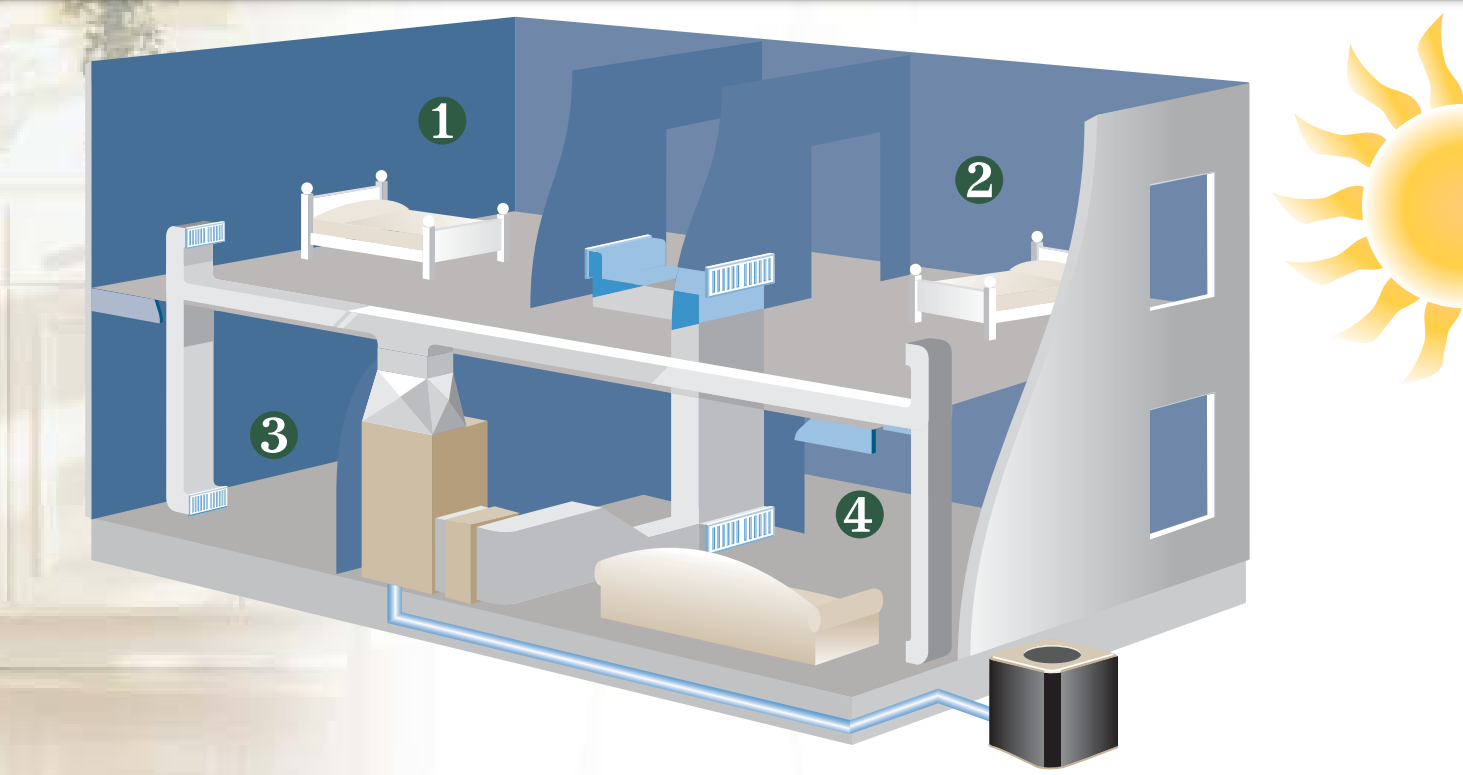
Winter is just around the corner! Cold air = dry air which means low humidity. The humidity level in your home can greatly affect your quality of life. A healthy humidity level in your home can prevent colds, dry/cracked skin, help avoid damage to wood floors, and lower the cost of your energy bills.
Low humidity in the winter can cause physical discomfort because it dries out the eyes, throat, skin, and can potentially lead to a variety of other health related issues such as nose bleeds. In addition, the dry air accompanied with the decrease in humidity substantially increases the static electricity in the air. An increase in static electricity can produce those annoying static shocks when you touch objects in your home like door knobs, chairs, light switches, etc.
In order to protect your home against sudden or expected drops in humidity levels, we recommend installing a humidifier. Keeping humidity levels between 30-60% is recommended to help manage certain health ailments and provide general comfort. Another great benefit of controlling the humidity in your home is that it helps ease the workload on your furnace. When you raise the humidity levels during the winter in your home, you will actually feel warmer in lower temperatures which will allow you to lower your thermostat settings and reduce your energy costs.
If portable room humidifiers, additional house plants, and other home remedies aren’t doing the trick, we may recommend installing a whole home humidifier such the Healthy Climate HCWP18. At Charlotte Comfort Systems, we sell and install a variety of humidity control solutions including the HCWP18. Give us a call at 704-366-1661 or send us a message if you would like to setup an in-home consultation so our technicians can provide you with the best solutions for managing the humidity levels in your home.
continue reading
Related Posts
The Solar Eclipse will commence at approximately 1:54 p.m. ET in Charlotte, North Carolina, with the peak of the partial eclipse occurring around 3:11 p.m. ET.
This intelligent system helps ensure that your family breathes nothing but the healthiest, purest air, even amidst Charlotte's pollen season.
Zoning systems offer a multitude of benefits that align with modern homeowners' desire for personalized comfort, energy efficiency, and control.




